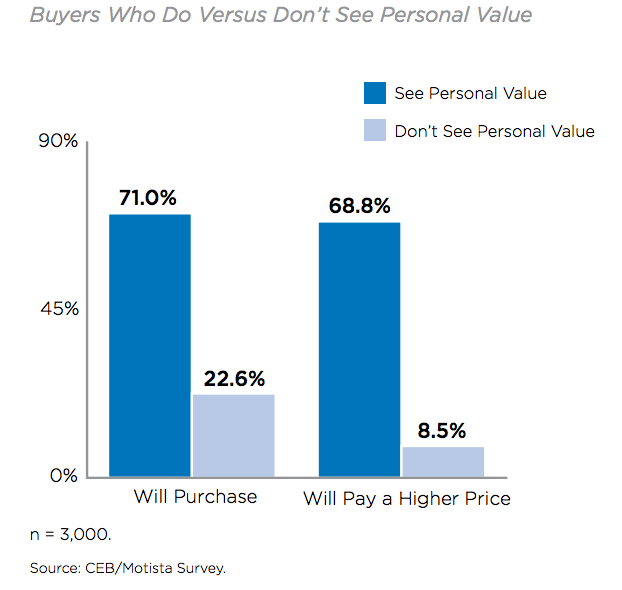What sets your business apart? What are you offering that no one else is? If you've taken time to write out your Unique Value Proposition, you've already asked yourself such questions. I'm not about to tell you those questions aren't valuable – as they definitely are – however as Kissmetrics and others point out, there's a proposition that is much more valuable to your potential clients. This week's tip: Find what is personally valuable to your unique audience.
.png?width=702&name=Copy%20of%20Tuesday%20Tidbit%20(1).png)
A Unique Value Proposition may help your business define what you provide in a concise and meaningful way. The problem is that, unless what you do is completely different and unheard of, your UVP will likely sound similar to your competitors'. It will be similar enough so that your prospective client may not pay more for your service or product as they don't perceive what makes it more valuable than others.
As Kissmetrics points out,
"[T]he reality is that people are making these buying decisions—people who have emotions and who are concerned about things like getting a promotion, being respected by their peers, and not making mistakes. They fear risk. They want admiration. They are driven by the desire to be successful." – (source)
Buyers who see this personal value – the one that answers their own fears and desires – are far more likely to pursue your business offer or product.

Image sourced on Kissmetrics
How can you address personal value?
1. Know your audience
You'll never know what you need to say until you really understand who you're talking to. Define your target audience, map out who they are and what they do, find where they would be online and learn about their preferences.
2. Talk to your audience through your content marketing
If you follow the guides above, eventually, the people you want to reach will be a clear persona and your content will improve because of it. You will write as if you're talking directly to an individual and they will feel like you're writing for them.
3. Tell your story & the stories of your customers
When people read stories, they pay more attention than when they read your mission statement. There's something about hearing from real people who have experiences your service that really makes a difference. Take Airbnb for example – they could blab on and on about how cool their service is, but instead they share stories of people traveling the world and experiencing life in a new way.
4. Revisit your UVP
Once you've walked through the steps above, hopefully your audience and tone become clearer and you can readdress your Unique Value Proposition. It's no longer just about trying to stand out amongst your competitors, but rather talking to your audience (who you know so well) in a concise and powerful way.
This guide from SumoMe is one of the best I've seen in writing your UVP in a way that really speaks to your audience. It breaks down everything from your website heading to your call to action – all honing in on your one statement.
Sign up for next week's marketing news bite below!